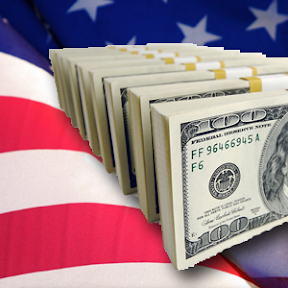
When I selected this book to review for
theooze.com, I did so because of the description. I was intrigued that the author had moved to Christianity from an Atheist point of view. I find the views of the truly atheist intriguing, and I was curious how she got around some of the common barriers that would keep one from theism. However, I ended up leaving this book deflated because I felt that none of my questions were satisfied.
So overall, this review is truly a critique. I don't like writing this kind of piece because someone poured their soul into this work. Also, because I feel unqualified. She is a published author... let's see... where are my published works? None to be found. Somehow it feels like I am backseat driving.
So let me start out with what I did like. The author is a wonderful story teller. Her book goes back and forth chapter by chapter between the narrative of her life, and the commentary on those parts of her life. She brought me into the tale of her journey and I cared about the directions she was taking. Particularly fulfilling were the parts that dealt with her relationship to her father. She knows how to translate love to the written page.
What I did not like in her book was the commentary. To me, it seemed very contradictory and inconsistent. She seemed to vacillate between speaking of the large God of the Universe... to the smaller god of evangelical Christianity. She wanted to speak of the freedom of questioning... but only if you come to certain conclusions.
For example, she presents four filters with which she determines that Christianity is true. Christianity passes these tests, whereas other religions don't. They are that the religion is:
- Livable,
- Consistent
- Sustainable
- Transferable
She uses examples to show where Christianity passes each of these markers. The problem is that each of her points could be used against Christianity as well as for it. They also are passable by many other religions. These kind of logic efforts only work for the convinced.
I also feel she made a weak argument against pluralism. She falls into dualistic premises that require you to agree with her definitions to move forward in her argument... and she is rather prideful at that. She says that "world religions are incompatible at their core", and of pluralists:
World religions are NOT saying the same thing, but that is okay because religious pluralists either (1) understands each world religion better than those who practice it, or (2) is enlightened to the point where they can comprehend a reality ("all roads lead to the same god") that either eludes or offends actual adherents of the great world religions.In this, she insists on the same "either/or" arguments that pluralists resist. To her, every Christian is a fundamentalist Christian; every Muslim is a fundamentalist Muslim, etc... What she ignores (or is unaware of) is the overlap that can exist. Where the Muslim who is genuinely moving toward the way of God finds himself having more in common with the Jewish man who is on the same journey, than he does the fundamentalists of his own faith tradition.
Also, she spends a lot of time using her filters trying to rationalize why Christianity is true. Yet in the end, it was a "Damascus Road" experience that brought her to Christ. She wants to show that Christianity can be rationally discerned... but that was not her route to conversion. It kind of felt like a bait and switch.
I have no problem with a "Damascus Road" experience because I had a similar conversion. I thought church and church people were annoying and God was far away. In less than an hour, God became my personal obsessive compulsive disorder.
But the more I learn about other religions, I discover that all my Christian experiences and arguments can be duplicated in those religions as well. The author tells the story of how a certain miraculous event stumped her atheistic mind. However, I have heard similar tales in every branch of Christendom and other religions as well. Her conversion story can be told in every religion since time began.
My difficulty is not that she had these experiences... but that she tries to make them sound unique. That somehow these validate Christianity, while invalidating everything else.
So in the end, I didn't see where she had anything new to offer. When she was an Atheist, she was right and everyone else was wrong. Now she is a Christian; and she is right and everyone else is wrong.
She switched jerseys, but is still playing the same game.
 Really! Just go over the 4 spiritual laws, have them repeat a prayer after you and WHEW!! They are safe! No more having to worry about roasting over a spit for them! ;)
Really! Just go over the 4 spiritual laws, have them repeat a prayer after you and WHEW!! They are safe! No more having to worry about roasting over a spit for them! ;)





 I have been in Michigan this week visiting friends and family. It has been great to get caught up with people, and it has been a rare occasion to get the my brothers and I under my parent's roof at the same time.
I have been in Michigan this week visiting friends and family. It has been great to get caught up with people, and it has been a rare occasion to get the my brothers and I under my parent's roof at the same time.